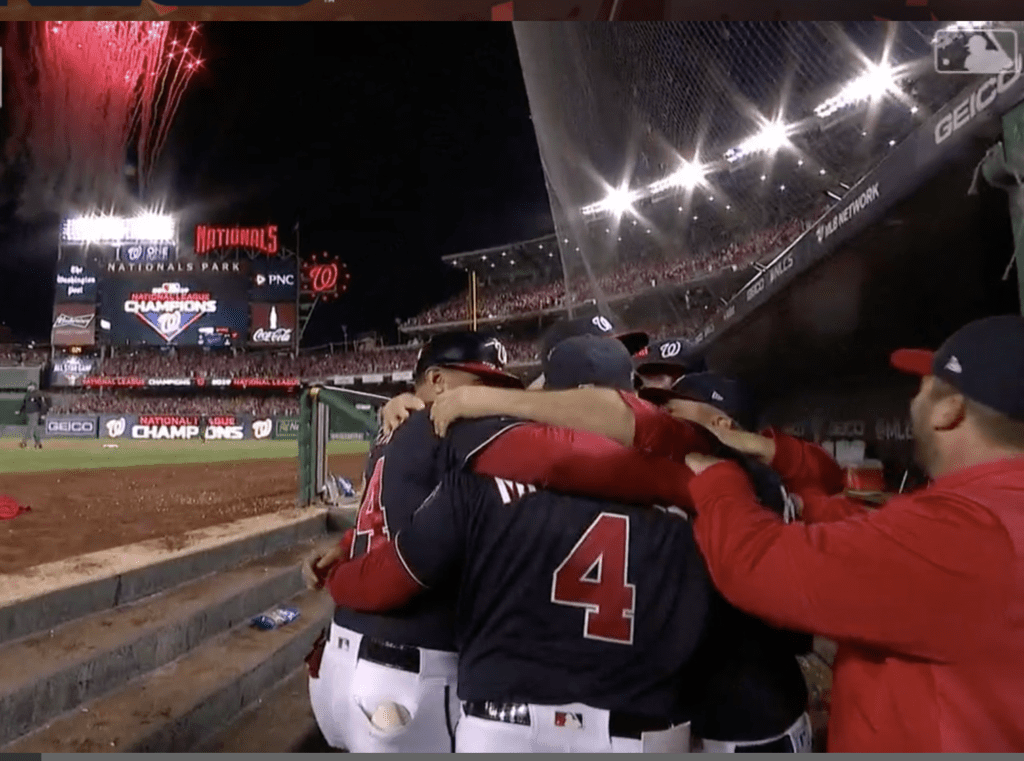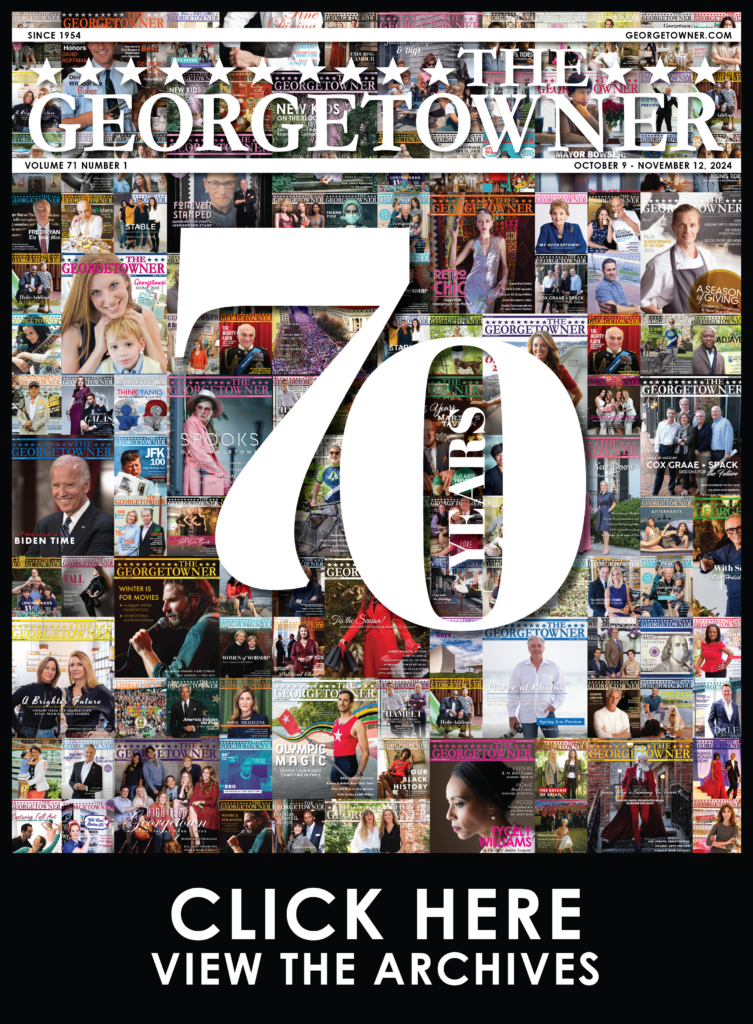I woke up this morning, looked at the morning paper and thought of baseball.
I thought of another day, in April of 2013, when I watched the Washington Nationals baseball team run from the dugout one by one to be introduced, under the watchful eye of a bird named Scratch and thousands of fans, many of them squealing and screaming children, in the still fresh stadium by the Navy Yard.
Some predictions had the Nationals as a serious pennant and World Series contender that year. They had come agonizingly close the previous year. They had guys like Zimmerman and Werth, Strasburg and Harper, on the field that day, when the sun was out and bright as a new idea.
That day, a man with a seat behind home plate had brought his 14-month-old son to the game. “It’s his first time,” the boy’s dad said.
That day, the Nationals played the Marlins, impeccably so. Strasburg pitched a shutout and Bryce Harper, who had won the Rookie of the Year Award the previous year, hit two home runs.
I remember a uniformed Nats employee on the second deck telling me with admiration: “He hit that one straight and up.” I remember thinking then that, when it comes to baseball, it couldn’t get much better than this.
In 2019, in October, the sport’s month of reckoning, things got better for the Nationals. Much, much better.
On a riotous, boisterous, delirious Tuesday night, before an in-the-flesh audience of 46,000 people — including, no doubt, somewhere, a 14-month-old boy — the Washington Nationals whipped the suddenly hapless and helpless St. Louis Cardinals 7-4 to complete a sweep and, as they say, punch their ticket to the World Series.
This has not happened to a Washington baseball team since 1933, when everything we have today didn’t exist. That night, on the late news (or if you were blessed to be there), you watched an often-divided city come together.
The Washington baseball team in its current guise had won a pennant and a slot in the World Series. Not only that, this was the first time in the Nationals’ brief history that they had won a second-round series, to move on to the National League title game. Every year, the green field still seemed to glisten with the previous year’s tears.
This season’s journey to the World Series — where the Nats will face either the storied, world championship-rich New York Yankees or the formidable Houston Astros, considered by many to be the best team in baseball — was improbable, something of a magical mystery tour.
By season’s start, Harper, with his home runs and all-star appeal, was gone to Philadelphia, where he had a not-too-eventful season. The Nats, under second-year and youthful and ever-hopeful manager Dave Martinez, started out 12 games under 500, at 19-31, and there was already talk of firing Martinez and admitting to an already “lost” season.
The baseball fates, the confidence of the manager, an outstanding starting-pitching staff (see Mad Max Scherzer, Strasburg, etc.) and gritty, almost old-school playing — that included, for sure, home runs (see Anthony Rendon and Juan Soto), but also advancing the runner, stolen bases, improved defense, sacrifice flies, well-placed singles and outstanding role players like Howie Kendrick, who was the playoff MVP — covered up a manhole-sized problem in relief pitching.
Here’s what the Nats did.
They inched into the playoffs, won a loser-go-home game against the Milwaukee Brewers, then knocked off the National League-best Los Angeles Dodgers in a nail-biting series with pitching, defense and homers by stars like Zimmerman and Soto and a game tied in the eighth and won with a grand slam in the 10th by Kendricks.
On to St. Louis, where Anibal Sanchez and Scherzer, followed by Strasburg (2-0, 3-1 and 8-1, respectively), set up the shocking final win, which was basically won in the first inning with seven Nat runs.
The 4-0 sweep was a dominant achievement for the Nats, especially against the Cardinals, who had come off a 13-1 clincher of their own against the Atlanta Braves and had a legendary place in the history of the sport (Stan Musial, Bob Gibson, 11 World Series).
No matter what happens in the World Series — and, let’s remember, we’ve seen that anything can happen — the Nationals triumphs, as well as that of the WNB-champion Mystics this year — is part of the balm offered by sports in America. The dichotomy of real-world angst and political conflict on the one hand and success on field and court on the other feels especially up close and personal in Washington, where the movers and shakers of national and international affairs live and do their work, surrounded by the monuments of American democracy.
None of the crises we face, great and small, can be saved by sports. But the sports, the games, the triumphs, even the sometime defeats, are a balm against the wounds and storms outside. They let us live for a few hours and days in a dome (some professional teams, of course, have domes).
Watching the crowds in ecstasy — watching an old man in a Senators jacket and Nats fans dizzy with joy for nothing more than a swing and a miss — is better music than the discordant notes of a Trump rally, the sounds of mortars in Syria or … the arguments at a debate.
On Tuesday, Oct. 15, there was a Democratic presidential debate. And the following day, the president of the United States and the speaker of the House of Representatives accused each other of having meltdowns.
It’s not that no one cared. It’s that for this week in this town, what mattered was the last out plopping into a waiting glove.
Who’s ahead in the polls? In Washington, it’s the Washington Nationals and the Washington Mystics.
Those days will reverberate. Those fans, those players — including the big smile of Ryan Zimmerman, the only player remaining from the original Nats — gave us a snapshot of what it means to be united. We are all in the field of dreams, jumping up and down for as diverse a team as you could wish for.
This time, the noise made by 45,000 fans is a symphony.
Oh, my God! Look what the Mystics did!
Oh, my God! Look where the Nationals are!
Trump, Syria, Meet the Press?
Nah. Take me out to the ballgame.


